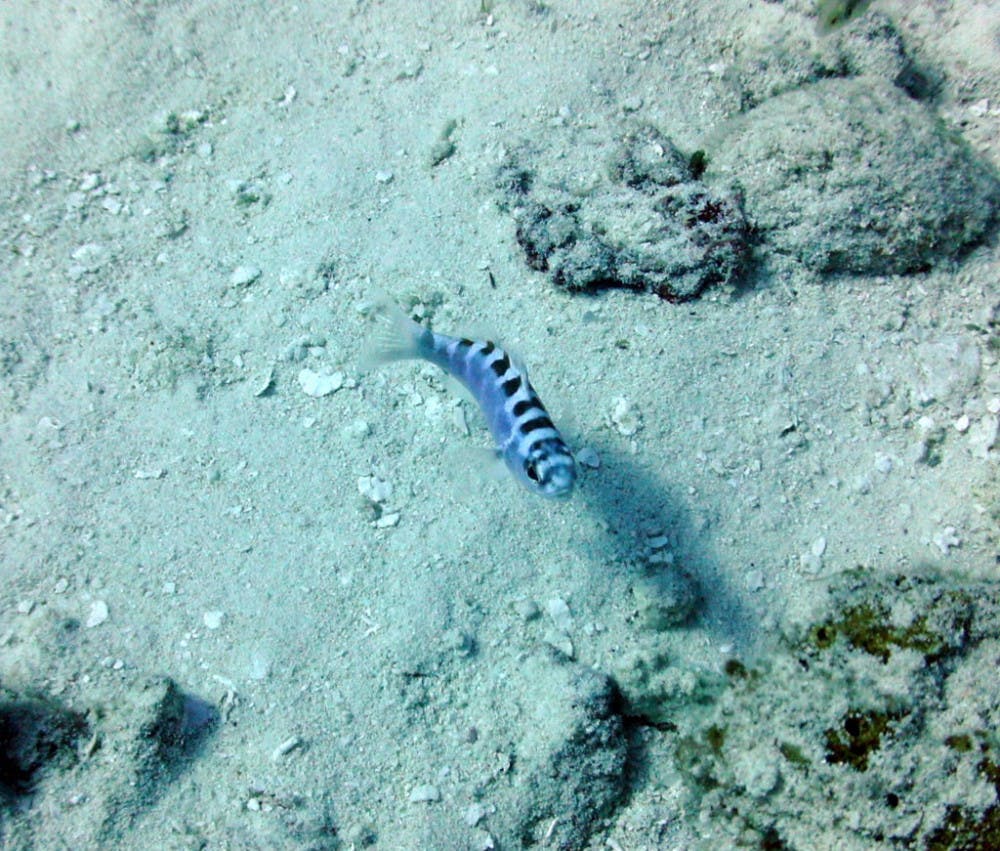
One species in the waters of Colon, Panama, remains with the same partner throughout its entire life, but it switches genders at least 20 times a day.
The chalk bass could teach people a thing or two about life, according to a press release.
Mary K. Hart, an adjunct faculty member in the UF Department of Biology, studied the fish for six months with her husband, Andrew Kratter, an ornithologist with the Florida Museum of Natural History.
They studied the chalk bass to learn more about its odd mating system, Hart said.
The fish are simultaneous hermaphrodites, she said, which allows them to bounce between gender roles as needed.
Lesson one: People give what they get.
When one fish produces 50 eggs, the partner will produce an identical amount when it switches genders.
“Eggs are more expensive than sperm, and it’s much more costly to produce eggs,” Hart said. “All of the fish are matching their investment in the partnership, and some fish within pairs are putting extra effort into the female function.”
Even when accounting for the size of the fish, the correlations remained, Hart said.
Lesson two: Cheating isn’t cool.
The fish also proved to be unusually faithful, she said. Of the 76 pairs Hart identified in her first month of research, all stayed with their original mating partners until one of the fish left the pairing, usually due to a predator attack.
Lesson three: It pays to impress one’s partner.
Not all of the fish were the perfect mate, however. Hart reported that about 20 percent of the fish broke away from their pairs and released sperm while another pair is mating.
“It is possible that a fish engages in streaking behavior to compensate for a partner’s under-production of eggs,” Hart said.
Lesson four: A stable relationship has its benefits.
These unusual mating quirks seem to be a strong evolutionary advantage for the Panama fish, Hart said. Because the fish are simultaneous hermaphrodites, they can fertilize as many eggs as they can produce.
It is not beneficial for the chalk bass to produce only sperm, because it is highly unlikely the fish would fertilize enough eggs, she said.
“One must be able to offer eggs to receive eggs in return,” she said. “Individuals that invest everything in male function can’t fertilize enough fish to make up for being all male. It’s like getting a good piece of another pie.”





